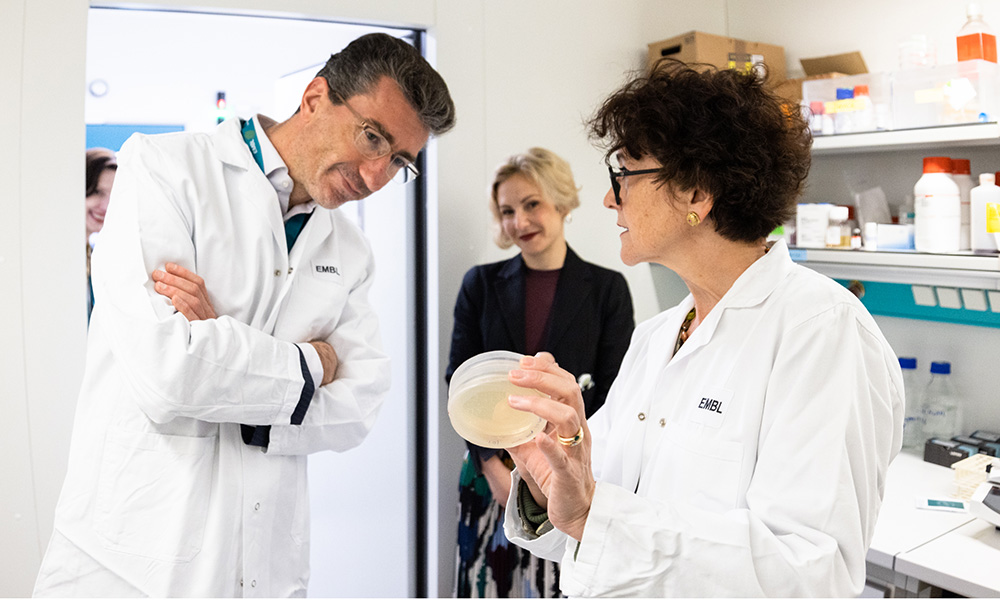
Sharing knowledge, widening access across Europe
European Commission and EMBL renew commitment, agree on new areas of cooperation, in new EC DG’s first infrastructure visit since appointment

EMBL and the European Commission (EC) have agreed to new areas of cooperation with the common goals of ensuring fair and equitable access to scientific research and applying EMBL’s 50 years of expertise in fundamental research to current and emerging health and environmental challenges.
“Our new two-year implementation plan covers topics ranging from improved pandemic prevention to cleaner oceans and better public engagement with science, to more equitable access to research findings globally,” EMBL Director General Edith Heard said. “Our cooperation with the Commission is part of our wider efforts to apply our expertise in the molecular life sciences to human and planetary health challenges.”
Speaking about the discussions at EMBL – his first visit to a research infrastructure since his appointment in February – Marc Lemaître, Director-General of the EC’s Directorate General for Research and Innovation, said that the breadth of topics covered under the 2023-24 implementation plan indicated the importance of the collaboration.
“EMBL’s broad range of expertise, infrastructures, and capacities – in biology, high-performance computing, data analysis – can contribute to a broad range of current European research and innovation priorities,” he said. “Access to these intergovernmental facilities is vital for European researchers and innovators.”
During the meeting at EMBL’s Heidelberg headquarters, the two Directors General also discussed the contribution of EMBL’s 2022-26 ‘Molecules to Ecosystems’ scientific research programme, including the Planetary Biology flagship Traversing European Coastlines (TREC) project.

The 2023-24 Implementation Plan implements a 2011 memorandum of understanding between EMBL and the European Commission to consolidate and further develop the European Research Area (ERA), notably concerning “research programming, training and mobility of researchers, research infrastructures, management of intellectual property and international collaboration”.
Specific topics included in the current Implementation Plan include clinical interpretation of genomics data; Open Science and Research Assessment; new scientific trends in AI, imaging and metagenomics; training in deep tech; Equality, Diversity, and Inclusion; establishing effective research infrastructures for the life sciences; improving engagement between the life sciences and citizens; and international cooperation.


